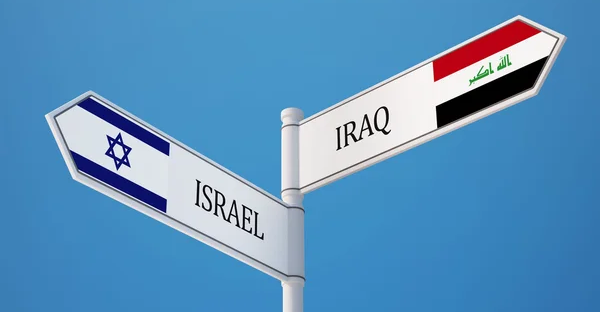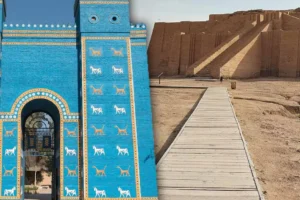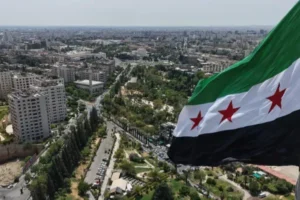
2025-09-12T08:20:40+00:00
font
Enable Reading Mode
A-
A
A+
Shafaq News
Recent
Israeli airstrikes on the Qatari capital, Doha, targeting senior Hamas leaders,
have sent shockwaves through the region, raising questions about Israel’s next
move.
The attack
marks an unprecedented escalation, as it struck a country closely allied with
the United States and one of the key mediators in negotiations aimed at ending
the war in Gaza. Doha has routinely hosted both Hamas leaders and Israeli
delegations during indirect talks.
This
aggressive expansion of Israeli operations comes on the heels of a stark
warning from Israeli Prime Minister Benjamin Netanyahu. Speaking on Wednesday,
Netanyahu declared: “To Qatar and every country harboring terrorists: either
expel them or hand them over to justice. If you don’t, we will do it
ourselves.”
Istanbul In Israel’s
Crosshairs?
Political
analyst Shwan Zangana told Shafaq News that, based on Netanyahu’s warning,
Istanbul is likely the next potential target unless Turkish authorities take
preemptive action and expel Hamas officials currently residing in the country.
Zangana said
he had initially expected the first Israeli strike to occur in Istanbul, but
believes Israel viewed the ongoing negotiations in Doha as a strategic
opportunity “to eliminate as many senior Hamas leaders as possible in a single
operation.”
He warned
that if Israel carries out a similar operation in Turkiye, it could severely
strain bilateral ties, which are already under tension.
However,
Turkish political analyst Gok Oglu downplayed the likelihood of an Israeli
strike on Turkish soil. Speaking to Shafaq News, Oglu cited Turkiye’s NATO
membership as a significant deterrent. “Despite statements from Israeli
officials, it is unlikely that Israel would launch an attack inside Turkiye,”
he added. Still, Ankara has issued strong warnings against such action and has
promised retaliation if its territory is targeted.
Strategic
Message Beyond Qatar
Iraqi
security expert Sarmad al-Bayati told Shafaq News that the airstrike in Doha
represents a clear violation of international norms, diplomatic conventions,
and national airspace sovereignty. He argued the operation sends a stark
message: “The entire region is now under Israeli reach, and it will strike
whenever it deems necessary — that is where the real danger lies.”
According to
al-Bayati, this requires a united regional response, especially from Saudi
Arabia, the Gulf states, Iraq, Jordan, and even Iran. “The threat is real, and
Israel continues its operations without facing any effective deterrent,” he
concluded.
Could Iraq
Be Next?
Security
researcher Munqidh Dagher echoed these concerns, asserting that Netanyahu is no
longer operating within conventional limits and is likely coordinating closely
with the administration of US President Donald Trump.
Speaking to
Shafaq News, Dagher argued that Israel may seek to target any location housing
Hamas affiliates as part of a broader plan to reshape the Middle East.
Read more: Israel violates Iraq’s space to strike Doha
He also
suggested that recent Israeli warnings could also be aimed at Iraq — a country
previously targeted by Israeli rhetoric — although there is no confirmed
presence of Hamas leadership in the country, only possible sympathizers.
Jordanian
political analyst Hazem Ayyad expanded the scope of concern. He told Shafaq
News that Israel’s campaign is no longer limited to top-tier Hamas leaders but
could extend to secondary and even grassroots activists under the pretext of
posing security threats. “Even individuals involved in organizing solidarity
efforts, like the Freedom Flotillas to Gaza, may become targets,” Ayyad warned.
He also
pointed to a possible shift in Israeli tactics: “Beyond airstrikes, Israel
may increasingly rely on Mossad-led death squads to carry out targeted
killings, even extending their operations into Europe.”
US
Assurances Amid Rising Tensions?
Despite
these growing fears, Gabriel Sawma, a former advisor to President Trump’s
Advisory Council, attempted to calm speculation regarding Iraq. Speaking to
Shafaq News, Sawma emphasized that Iraq remains a country of strategic
importance to the United States, particularly in maintaining regional
stability.
“The Middle
East is a critical area for both US security and economic interests,” he said,
adding that Iraq plays a key role due to its substantial oil reserves — the
fourth-largest confirmed reserves globally.
Sawma
concluded by stressing that Washington is invested in ensuring Iraq’s
stability: “Maintaining balance in Iraq is essential not only for regional
peace but also for stabilizing global oil prices, which directly affect the
American economy.”
Written and
edited by Shafaq News staff.





